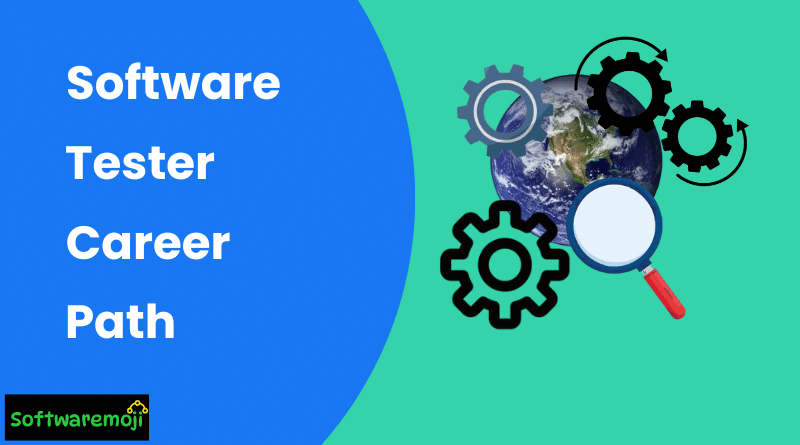
📌 How to Become a Software Tester:-
- Kickstart your tech career by learning how to become a skilled software tester.
- Master software testing tools and build a future-proof IT career.
- Explore the roadmap to become a successful QA tester from scratch.
📌Who is a Software Tester?
A software tester is a professional responsible for validating software functionality, identifying bugs, and ensuring the software meets quality standards and user requirements. Their role is crucial in optimizing software performance and maintaining product reliability.
📌What Does a Software Tester Do?
A software tester’s daily tasks include:
- Understanding requirement documents
- Creating and executing test cases
- Reporting and re-testing bugs
- Attending review meetings
- Collaborating with developers and other teams
📌Skills Required to Become a Software Tester:
- Discover the essential skills every software tester needs in 2025.
📌Non-Technical Skills:
- Analytical Skills – Ability to break down complex software into smaller units for better testing.
- Communication Skills – Strong verbal and written communication for reporting bugs and creating test plans.
- Time Management & Organization – Handling workloads efficiently during critical software releases.
- Great Attitude – A detail-oriented mindset with a proactive approach to problem-solving.
- Passion for Software Testing – Genuine interest in improving software quality.
📌Technical Skills:
- Basic Knowledge of Database/SQL – Understanding of database queries for backend validation.
- Linux Commands – Knowledge of Linux is beneficial as many applications are deployed on Linux servers.
- Test Management Tools – Experience with tools like TestLink for managing test cases.
- Defect Tracking Tools – Knowledge of tools like Jira and Bugzilla for bug tracking.
- Automation Tools – Experience with Selenium, QTP, or other automation frameworks.
- Scripting Languages – Understanding of JavaScript, VBScript, C#, or Shell scripting.
- Performance Testing Tools – Hands-on experience with JMeter or LoadRunner for non-functional testing.
📌How to Become a Software Tester?
Learn manual and automation testing to boost your job opportunities
📌Step-by-Step Guide:
- Learn Basic Software Testing Concepts – Understand testing methodologies, life cycle, and principles.
- Gain Practical Experience – Apply for freelancing jobs on platforms like UpWork or Freelancer.
- Master Automation Tools – Learn Selenium for automation testing and JMeter for performance testing.
- Obtain Certifications – Consider ISTQB certification for a competitive edge.
- Apply for Permanent Jobs – Use job portals like Monster, Naukri, or LinkedIn to find full-time opportunities.
📌Academic Background for Software Testing:
A degree in Computer Science (B.Tech, B.E., MCA, BCA, or BSc-Computers) is beneficial. However, non-IT graduates can enter the field by acquiring software testing certifications like ISTQB or CSTE.
📌Software Testing Certifications:
- ISTQB Foundation Level – Recommended for entry-level testers.
- Certified Software Tester (CSTE) – Focuses on software development and testing methodologies.
- Automation Tool Certifications – Certifications for tools like Selenium, LoadRunner, or JMeter.
📌Career Path of a Software Tester:
- QA Analyst (Entry-Level) – 0-2 years of experience.
- Senior QA Analyst – 2-3 years of experience.
- QA Team Coordinator – 5-6 years of experience.
- Test Manager – 8-11 years of experience.
- Senior Test Manager – 14+ years of experience.
📌Alternate Career Tracks for Software Testers:
- Automation Testing – Automating test cases using tools like Selenium and QTP.
- Performance Testing – Ensuring application performance using JMeter and LoadRunner.
- Business Analyst – Leveraging domain knowledge to improve business processes and workflows.
📌Software Tester Salary:
- United States: $45,993 – $74,935 per year
- India: ₹2,47,315 – ₹4,49,111 per year
Additional benefits may include health insurance, bonuses, and other perks depending on the company.
📌Common Myths About Software Testing:
- Software Testing Pays Less than Development – Testers are compensated equally in most companies.
- Software Testing is Boring – The field involves challenging problem-solving and continuous learning.
- Testing is a Secondary Career Choice – QA professionals are vital in the software development life cycle.
Similar Posts: Software Testing Life Cycle (STLC):-
📌Conclusion:
Software testing is a rewarding career with opportunities for growth in automation, performance testing, and business analysis. Whether you’re an IT graduate or a career switcher, software testing offers a stable and lucrative career path. Start learning today and build a successful future as a software tester!
